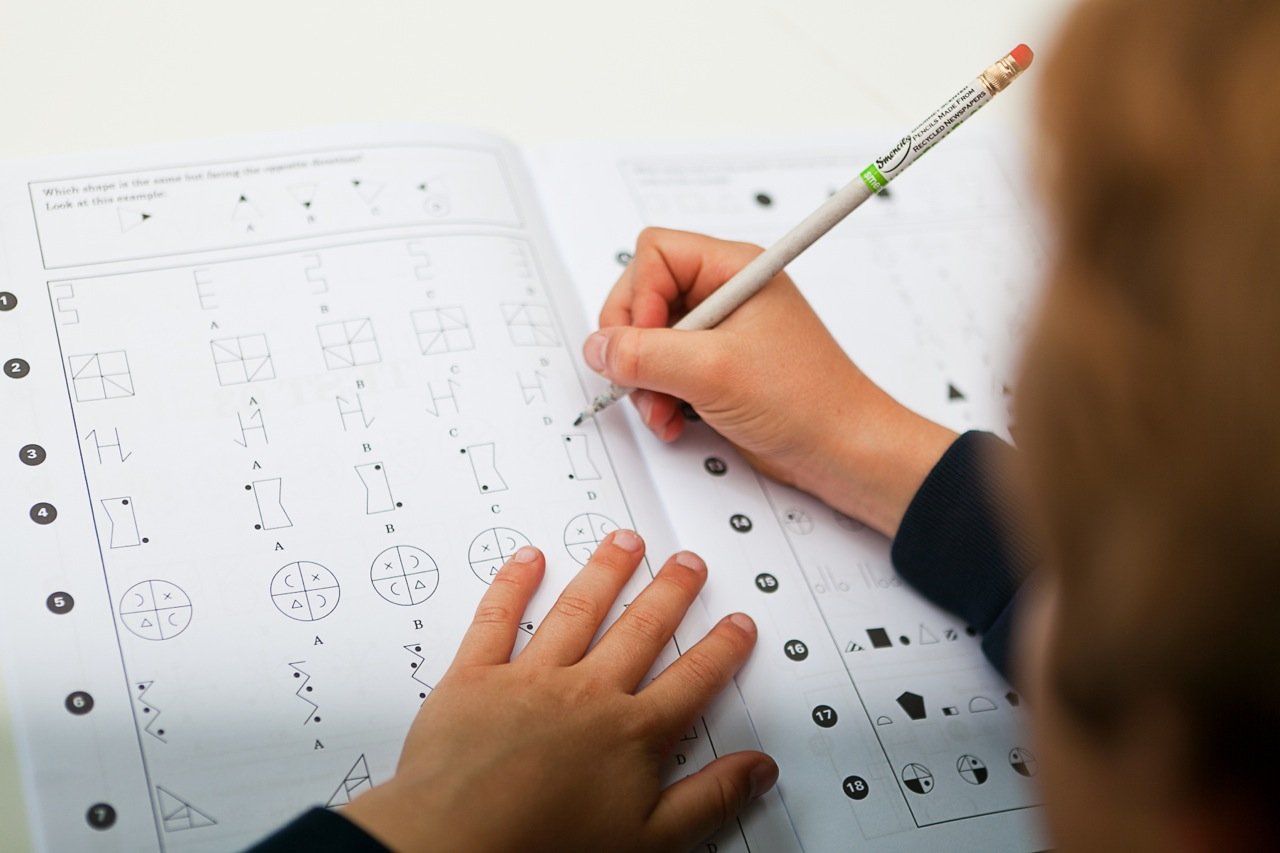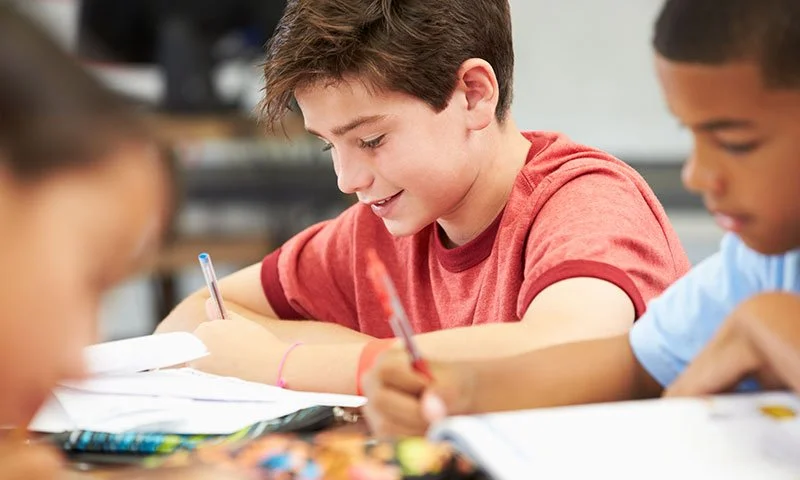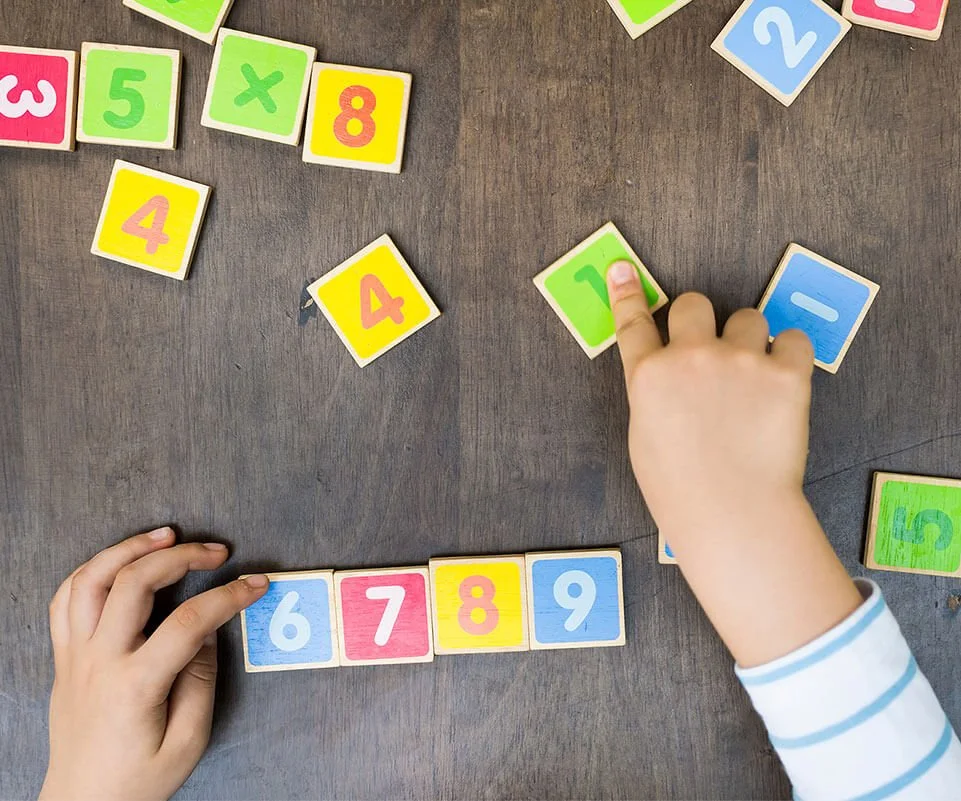
Love Learning Blog
STUDY TIPS FOR STUDENTS AND PARENTS
Recent posts

You don’t have to control your thoughts. You just have to stop letting them control you. Follow these tips to reduce your test anxiety and go into tests feeling calmer and more confident.
Are you experiencing a gradual decline in your memorization? Do you find it challenging to remember a plethora of information? Are you looking to enhance your memorization skills?
You’ve come to the right place!
There’s no doubt, English Literature A Level can be challenging. It’s also an extremely rewarding and eye-opening subject though, that encourages new ways of looking at yourself and the world around you!
Are you starting Year 11? You're already halfway through your GCSE studies, so you are familiar with the work, but what can you expect at school this year?
The content of year 12 English is not necessarily any harder than the content in year 11 English, but it is a step-up in terms of importance, and the pressure of being in year 12 can make it all the more challenging.
Whether you’re just starting to think about your GCSEs or looking for ways to take your preparation to the next level, this post is for you. Let’s get started!
Year 9 is an important year for students of English. In this year, students move beyond the basics of reading skills and basic writing and move onto to analysing complex texts and developing complex, sustained extended essays.
In Year 8 English, the change can be very challenging as students move from grammar and basic discussions about texts to writing analytical responses in complex paragraphs or essays.
Your child has made the big leap to secondary school and KS3. So what will they learn in their new Year 7 English classes?
Year 6 will be a formative and exciting year for your child. Now that they are at the top of the school, they will be preparing for both SATs and secondary school in earnest, and they will develop much more independence and resilience over the year.
Whether your child is a bookworm or doesn’t enjoy English at all, knowing what they’re learning in school means you can give them extra support at home. Here’s your guide to what they’re being taught as part of the Year 5 English curriculum.
In Year 4, your child will get to know more complex punctuation like inverted commas and apostrophes, will learn key spellings, and will continue to develop their reading and writing.
In their English lessons in Year 2, your child will develop their knowledge of grammar and punctuation, as well as their speaking, reading, and writing skills.
In their English lessons in Year 2, your child will develop their knowledge of grammar and punctuation, as well as their speaking, reading, and writing skills.
In their English lessons in Year 1, your child will learn the spelling, grammar and punctuation rules they need to write clearly.
Year 13 maths is the second year of study of A-level (Advanced level) maths, which is the qualification for further career courses.
Year 12 is a big year for many. It can be filled with anxieties, uncertainty and those dreaded end-of-year exams. But there are things you can do along the way to help relieve some of the end-of-year pressures and ace Year 12.
Hey there, fellow mathematicians! In year 11 maths, some topics like estimating the square roots and cube roots, quadratic inequalities, types of functions, the law of sines and law of cosines are newly introduced.
Wondering what Year 10 Maths has coming up for your child? Year 10 sets the foundation for the Mathematics course that your child will choose for Year 11 and Year 12, so it is one of the most important years.
The spread of abilities is vast by Year 9 with the higher achievers able to tackle some quite complex topics. Whilst Year 9 can be difficult for students, parents and teachers to navigate, it is a pleasure to see that our children are growing up.
Year 8 mathematics encompasses a diverse range of topics, each building upon the foundational knowledge acquired in previous years. To support your child's journey, we've compiled a comprehensive guide featuring valuable tips for engagement and common mistakes to avoid in Year 8 maths.
Year 7 mathematics builds upon the foundational concepts learned in primary school while introducing new topics and challenges.
The principal focus of mathematics teaching in upper key stage 2, especially Year 6 is to ensure that pupils extend their understanding of the number system and place value to include larger integers – numbers up to 10 million.
In this comprehensive guide, we'll explore the key topics covered in the Year 5 mathematics curriculum and provide valuable insights, tips, and resources to support your child's learning.
As they progress through primary school, knowing the best way to give your child help with their school work can prove very difficult as a busy parent. They'll encounter a treasure trove of mathematical marvels that will expand their knowledge and skills. Here's a glimpse into what's in store for them!
Let's delve into what your child will be discovering in Year 3 maths and how you can support their mathematical growth at home.
Here's a glimpse into what your child will be exploring in Year 2 maths and how you can support their mathematical growth at home.
Are you navigating the exciting world of Year 1 maths with your little ones? If so, you're in for a journey filled with counting adventures, shape explorations, and number discoveries!
As a parent, you can take an active role in providing support as your child navigates teen love. Here is how you can show your child that you are on their team!
Exams
A speech is simply an official verbal presentation that is meant to achieve a certain goal. The aim of making a speech or even writing one, could be to convince the target audience to buy your idea or even pay attention to your subject of discussion. Here are a few tips to help you score top marks in your GCSE English exam.
While facing the fact that you failed GCSE exams may be a lot to process, the point is that it’s not the end of the world. Here are is what you can do if you didn’t get the grades you needed to pass and move on to A Level.
Feel petrified with the thought of studying non-stop for extended periods of time? Studying for your exam may be tough work, but doesn't have to be dull. A great study break is the key to making the best use of your time during GCSE, A-level, IB or University preparation.
With all this work going towards GCSEs and A Levels, the majority of students and parents want to know how GCSEs contribute to the university application process in the UK. Do GCSEs earn you UCAS tariff points?
We explain who qualifies as a disadvantaged student for special considerations and rescheduling examinations at GCSE.
There are UK schools that use GCSE and iGCSE interchangeably but many parents want to know the differences that exist between the two. Here are a few points that seek to explain the difference that exists between these two major qualifications in the UK.
So you’ve spent several years studying and revising everything you need to know to pass your science exams. Here are some tips and exam techniques to get you the grade for your Biology, Chemistry and Physics GCSE , A level and IB exams.
Not only can you keep your brain in shape with reading and school work, but like your muscles, your brain benefits from daily physical exercise. Let’s see what kinds of exercise will keep your brain happy and healthy in order to keep you focused.
11+,, 13+ Common Entrance , GCSE, A-Levels, IB = stress! Over the years, research has revealed that there are various ways in which you can cope with exam associated stress. Some of these ideas may sound very ordinary but have been proven to help students stay calm and prepare better.
IB, A-level and GCSE exams can be quite stressful. The results play a prominent role in your future. If you are preparing for any of these exams, these 6 tips are a blueprint for exam preparation and revision.
You're sitting in the exam room for your English Literature GCSE and you are presented with a poem you've never seen before. What do you do? Catrin is here to walk you through it.
Whether you are looking at your coursework or sitting a GCSE or A Level exam, breaking down the process into small and doable chunks will help you approach the question with confidence. No matter what you’re writing for, these steps will always be necessary for essay planning and writing.
Did you know that you can “trick” your brain into remembering information? Here are Love Learning Tutors’ favoured methods of revision, perfect for keeping key ideas in your noggin during exam season, whether you're doing your GCSE, A Levels or IB exams!
You don’t need to be an expert to make a significant difference to your child’s academic career. Below are some quick tips on how to support your child through their exams; be it 11+, 13+ Common Entrance, GCSE, A Level or IB.
Lifestyle
Our favourite places to pick up some tasty treats around Notting Hill. We share our pick of farmers markets, butchers, and places to buy wholesome groceries and fruit & veg. It’s all brain food after all.
Not only can you keep your brain in shape with reading and school work, but like your muscles, your brain benefits from daily physical exercise. Let’s see what kinds of exercise will keep your brain happy and healthy in order to keep you focused.
11+,, 13+ Common Entrance , GCSE, A-Levels, IB = stress! Over the years, research has revealed that there are various ways in which you can cope with exam associated stress. Some of these ideas may sound very ordinary but have been proven to help students stay calm and prepare better.
We’ve come to the last hoorah of the summer holidays! Here are our fantastic recommendations to do with the kiddos in London before the term kicks off in September.
You don’t need to be an expert to make a significant difference to your child’s academic career. Below are some quick tips on how to support your child through their exams; be it 11+, 13+ Common Entrance, GCSE, A Level or IB.
Looking for some activities that the whole family can join in on? Here are our favourite places to go this Easter around London.
If athletes eat to win, let’s get our kids eating to learn. This winning team of foods will help school children stay focused during lessons, sit quietly doing tasks and have the energy to be Usain Bolt on the track.
Technology and Resources
Does your child struggle to get the hang of touch typing? Or simply just want to be able to work at a faster pace? Here are our top 5 websites that teach your children how to touch type with ease.
The world has becoming incredibly tech savvy and so have the younger generation. There are so many websites and apps available which provide useful online resources for primary children to exercise their brains, makes learning interesting and fun. Here is our top 10 list.
Gone are the days of listening to audio tapes in the car on the way to work and reciting what you hear. Technology has provided us with a host of applications for learning new languages, right from your phone, this makes learning more fun and intuitive, not to mention easier!
How to...
You don’t have to control your thoughts. You just have to stop letting them control you. Follow these tips to reduce your test anxiety and go into tests feeling calmer and more confident.
There’s no doubt, English Literature A Level can be challenging. It’s also an extremely rewarding and eye-opening subject though, that encourages new ways of looking at yourself and the world around you!
Are you starting Year 11? You're already halfway through your GCSE studies, so you are familiar with the work, but what can you expect at school this year?
A speech is simply an official verbal presentation that is meant to achieve a certain goal. The aim of making a speech or even writing one, could be to convince the target audience to buy your idea or even pay attention to your subject of discussion. Here are a few tips to help you score top marks in your GCSE English exam.
So you’ve spent several years studying and revising everything you need to know to pass your science exams. Here are some tips and exam techniques to get you the grade for your Biology, Chemistry and Physics GCSE , A level and IB exams.
You're sitting in the exam room for your English Literature GCSE and you are presented with a poem you've never seen before. What do you do? Catrin is here to walk you through it.
Does listening to music while you are revising help? Well, the studies in this area would suggest the answer is…read Zoe’s post to find out whether it supports your exam preparation of distracts you from it.
The phrase problem solving has been a buzzword in education in recent years. Containing more content, it is an express aim of the new-style GCSEs to train students to become better problem solvers. However, whilst a lot of time in the classroom is spent learning topics, problem solving skills are different.
Spanish coursework is around the corner. Specifically, the Spanish Oral. Be it GCSE Spanish or A Level Spanish, fear not, my gift to you is five handy tips to help you through!
Whether you are looking at your coursework or sitting a GCSE or A Level exam, breaking down the process into small and doable chunks will help you approach the question with confidence. No matter what you’re writing for, these steps will always be necessary for essay planning and writing.
Approaching your exam there is an overwhelming feeling of regret, disappointment and anger. The following are some tips to help you in planning independent work so that you can feel confident when that deadline or exam finally comes around.
Did you know that you can “trick” your brain into remembering information? Here are Love Learning Tutors’ favoured methods of revision, perfect for keeping key ideas in your noggin during exam season, whether you're doing your GCSE, A Levels or IB exams!





















































